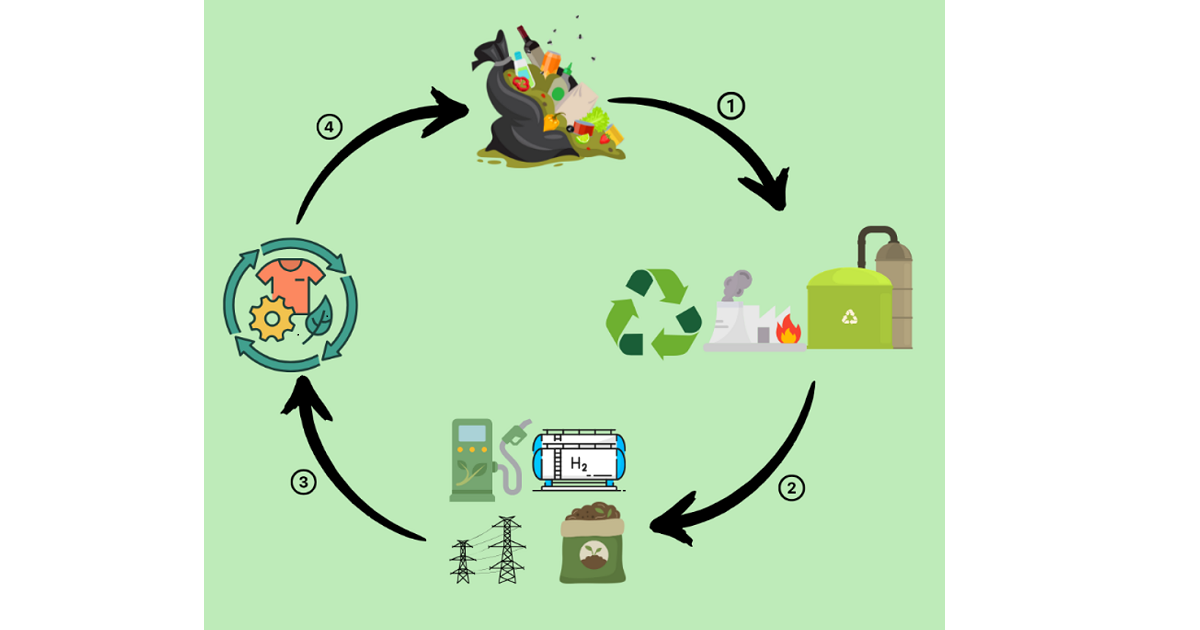Studies on Waste Resource Utilization and Its Processing Technologies
A special issue of Processes (ISSN 2227-9717). This special issue belongs to the section "Environmental and Green Processes".
Deadline for manuscript submissions: 15 August 2026 | Viewed by 2521

Special Issue Editor
2. German Biomass Research Centre (DBFZ), 04347 Leipzig, Germany
Interests: process development; process optimization; multi-purpose products; increasing efficiency; circular economy and resource conservation
Special Issues, Collections and Topics in MDPI journals
Special Issue Information
Dear Colleagues,
Waste is an inevitable by-product of diverse human activities, encompassing households, urban environments, industrial operations, health, and institutional settings. The management and disposal of waste present significant challenges, necessitating approaches that are financially viable, technically and environmentally sound, and socially and legally compliant. These challenges are particularly pronounced for municipalities worldwide, highlighting the need for innovative solutions.
The concept of waste resource utilization is pivotal to the advancement of a circular economy and has consequently gained considerable attention within the scientific research community. A range of waste processing technologies, including recycling, composting, anaerobic digestion (AD), incineration/combustion, pyrolysis, and gasification, are instrumental in converting various waste forms, such as organic (food waste, sewage sludge, forest, and agricultural residues) and inorganic (plastics, textiles, glass, metallic waste, and electronic waste), into valuable chemicals, energy, and fuels. These end products can then be utilized across multiple sectors, including transportation, electricity generation, and industrial chemical production.
Despite the various studies conducted in this domain, the inherent characteristics of waste, along with other influencing factors, reveal a multitude of technical, environmental, social, and economic challenges that must be addressed to optimize waste resource utilization.
This Special Issue, ‘Studies on Waste Resource Utilization and Its Processing Technologies’, invites submissions of high-quality research that emphasizes waste resource valorization using both conventional and innovative methodologies, with a focus on achieving technical, environmental, social, and economic sustainability. Relevant topics for consideration include, but are not limited to, the following:
- Production and processing technologies for refuse-derived fuels (RDFs);
- Thermochemical conversion methodologies for waste-to-energy applications;
- Biological conversion strategies for energy recovery from waste;
- Techno-economic analyses and life cycle assessments of waste resource utilization practices;
- Waste reuse, recycling, and resource recovery strategies;
- Experimental and mathematical modeling of waste-to-energy conversion technologies;
- Comprehensive waste characterization and management practices.
Contributions that advance our understanding and implementation of these topics are highly encouraged in order to further the discourse in this critical field of study.
Prof. Dr. Satyanarayana Narra
Guest Editor
Manuscript Submission Information
Manuscripts should be submitted online at www.mdpi.com by registering and logging in to this website. Once you are registered, click here to go to the submission form. Manuscripts can be submitted until the deadline. All submissions that pass pre-check are peer-reviewed. Accepted papers will be published continuously in the journal (as soon as accepted) and will be listed together on the special issue website. Research articles, review articles as well as short communications are invited. For planned papers, a title and short abstract (about 250 words) can be sent to the Editorial Office for assessment.
Submitted manuscripts should not have been published previously, nor be under consideration for publication elsewhere (except conference proceedings papers). All manuscripts are thoroughly refereed through a single-blind peer-review process. A guide for authors and other relevant information for submission of manuscripts is available on the Instructions for Authors page. Processes is an international peer-reviewed open access semimonthly journal published by MDPI.
Please visit the Instructions for Authors page before submitting a manuscript. The Article Processing Charge (APC) for publication in this open access journal is 2400 CHF (Swiss Francs). Submitted papers should be well formatted and use good English. Authors may use MDPI's English editing service prior to publication or during author revisions.
Keywords
- waste-to-energy
- refuse-derived fuels
- waste characterization, sustainability
- recycling
- waste resource utilization, waste management
- life cycle assessment
- techno-economic assessment
- waste processing technologies
Benefits of Publishing in a Special Issue
- Ease of navigation: Grouping papers by topic helps scholars navigate broad scope journals more efficiently.
- Greater discoverability: Special Issues support the reach and impact of scientific research. Articles in Special Issues are more discoverable and cited more frequently.
- Expansion of research network: Special Issues facilitate connections among authors, fostering scientific collaborations.
- External promotion: Articles in Special Issues are often promoted through the journal's social media, increasing their visibility.
- Reprint: MDPI Books provides the opportunity to republish successful Special Issues in book format, both online and in print.
Further information on MDPI's Special Issue policies can be found here.





